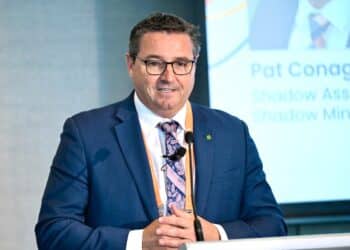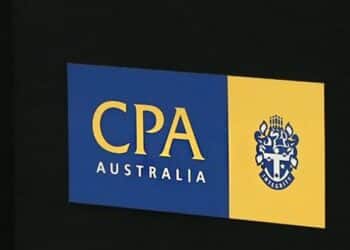On Wednesday, the Super Members Council (SMC), which represents Australia’s largest funds, including AustralianSuper and Australian Retirement Trust, announced that it supports the first Delivering Better Financial Outcomes (DBFO) bill in its entirety.
Providing reasoning for its unequivocal support, chief executive Misha Schubert said the DBFO, and more specifically changes to section 99FA of the SIS Act, would help stop “dodgy financial advisers” from using cold-calling businesses to solicit clients.
Schubert also called for the tightening of anti-hawking laws, on top of the swift passage of DBFO legislation, to prevent “rip-off merchants” who are exploiting a hole in anti-hawking legislation – which bans the unsolicited selling of financial products – to secure “exorbitant advice fees” from unsuspecting consumers.
After her comments were met with substantial opposition from the advice community, SMC issued a statement on Friday, attributed to Schubert, in which she is quoted as saying that she “deeply values the role of high-quality qualified financial advisers”, particularly as it pertains to the role they play in providing advice that is in the “best interests of super fund members”.
“Disappointingly, some comments I made in a media release earlier this week highlighting ASIC’s recent concerns about a small subset of operators using cold-calling and online click bait tactics to pressure Australians into moving their super into underperforming products have been mischaracterised,” Schubert said.
“The remarks were not intended to be generalised to all financial advisers.
“I regret – and apologise for – any offence that the mischaracterisation of my remarks caused to reputable financial advisers who are working faithfully in the best interests of their clients.”
Moreover, Schubert called on “everyone to work together to secure the swift passage” of the “crucial reforms” currently being considered in Parliament.
“These landmark reforms will ensure millions of Australians can plan confidently for their retirement, informed by reputable financial advice,” Schubert added.
“That achievement will powerfully help the 11 million everyday Australians with their retirement savings in profit-to-member super funds in whose interests we advocate.”
However, Schubert’s recent statement seems to overlook a crucial point – the profession’s concern wasn’t just about the term “dodgy advisers” but also the characterisation of these entities as advisers.
Mary Delahunty, the CEO of the Association of Superannuation Funds of Australia (ASFA), defended financial advisers in a Senate hearing on Thursday, deeming the use of the term “dodgy advisers” inappropriate.
“I don’t think it’s correct to use the term adviser in the categorisation,” the ASFA CEO said.
“Certainly parties at the moment have managed to insert themselves into the conversation with members and we will prefer that that be done with the funds and with licensed financial advisers.
“I don’t think it’s correct to use the term adviser in that particular, you know, categorisation … I wouldn’t say you can categorise them [licensed advisers] as doing cold calling.”
Similarly, Financial Advice Association Australia (FAAA) chair David Sharpe expressed his disappointment with the SMC via LinkedIn, particularly the use of a “broad brush slur”.
“In a recent media release the SMC made reference to financial advisers as ‘rip off merchants’ and ‘dodgy’,” Sharpe wrote.
“It may be this language was meant to apply only to the tiny minority of advisers who do the wrong thing – if so, it wasn’t made clear. I’ll extend the courtesy that this was clumsy rather than deliberate. Regardless, such inflammatory and inaccurate language does nothing to help consumers or anyone else.
“Let’s be clear – the absolute vast majority of financial advice professionals work hard as the financial guardians to protect and grow the financial wellbeing of their clients.”
This sentiment was also enforced by FAAA CEO Sarah Abood, who said the language was “inappropriate” and “unfortunate”.
Referencing the exact report the SMC’s CEO cites as evidence of the presence of “dodgy advisers”, Abood said: “What has not been mentioned is that that report found that less than 1 per cent of the cases it reviewed showed any evidence of fee for no service and less than 0.07 per cent of those cases showed evidence of excessively high fees, according to ASIC’s definition.”




She apologised that we misinterpreted what she said, on a Friday afternoon. Hmmmm. That sounds genuine.
These deliberate slurs, mischaracterisations and desperation of swiftness are surely signs of a certain ‘collective’ who may be feeling a tad insecure about their little window of opportunity closing?
Causing considerable negative outcomes from actions that “were not intended” .. and the sorry not-sorry apology – gee she’s off to a great start in the revered CEO role where effective communication is surely a prerequisite??
Industry Super are gaging to roll out on mass Uneducated, Unqualified BackPacker Call Centers to Flog Single Product, Vertically Owned, in house only products.
And these Uneducated, Unqualified BackPacker Call Centers will be paid via HIDDEN COMMISSIONS charged to every member of Industry Super when most Members pay HIDDEN COMMISSIONS for NO SERVICE.
Let’s talk about DODGY ADVISERS.
That is exactly what Industry Super are trying to do with their Puppet Jonesy promoting too.
Why aren’t Industry Super made to declare the total value $$$$ tens of Millions they charge in HIDDEN COMMISSIONS, COLLECTIVE CHARGES, ADMIN FEES to pay for their BackPacker General Advice ?
Why aren’t Industry Super made to declare how many Members are paying HIDDEN COMMISSIONS for NO SERVICE ?
The Hypocrisy of Industry Super must be STOPPED
Sorry, not sorry. Blame the media for “mischaracterising” rather than just owning it that the comments were unfair and inappropriate. Disappointing but not surprising attitude from those living off the super gravy train.
Sorry, not sorry!
Putting her inflammatory comments aside, the real issue is her claim that super trustees should be given god-like powers to arbitrarily assess whether a financial adviser’s recommendations are good for their member or not. I hope these trustees will be going and getting their post-graduate degree and sitting the Fasea exam
Resign
Good! Now if the SMC are being genuine in their apology, then they will have no issue in having a retraction published in the various newspapers and media outlets that they conveyed their defamatory statement to in the first place! Issuing the apology on a Friday afternoon is a typical tactic so as to try and fly under the radar!
“….to pressure Australians into moving their super into underperforming products have been mischaracterised,”
OK, so the performance of the alternative product recommended by a Financial Planner is all she has an issue with is it?
This statement seems very similar to that which Treasury used in a submission to the Royal Commission in 2018 – Treasury is not a friend of Financial planners?
So, begs the question – are these rollovers occurring out of Industry Super? Perhaps that is REAL the problem?
Follow the money?
Delivering Better Financial Outcomes – who for Misha Schubert?
What is this legislation really trying to achieve? Financial Planner
You work for an organisation representing Product Providers – hardly the moral high ground?
Misha Schubert’s so-called apology rings hollow. Despite ample opportunity during the Senate hearing to adjust her stance, she chose not to. This could be either a rookie error from a new CEO unfit to lead such an important organisation or a calculated bad faith action by an experienced operative designed to garner maximum media coverage. Either way, Schubert’s leadership is clearly questionable. Her remarks have done significant damage, and her apology fails to address the core issue of mischaracterising an entire profession. For the sake of the financial services ecosystem, Misha Schubert should resign.
An apology does not matter the damage is done; it has been reported. I bet the apology gets less publicity!
Yeh right.
The Friday afternoon apology, the bureaucrats best friend, saying sorry when you don’t mean it. The only thing she regrets is letting slip the true feelings union funds, ASIC, APRA and many politicians have regarding advisers. The quickest and easiest way to pass the legislation is to take out the problematic amendment. In the hearing the lawyers clearly outlined why it is a problem. ASIC, APRA, SMC and Mr Jones on the other hand all say an explanatory memorandum can fix it, when the advice is it won’t. So to push it through unchanged and ignoring a clear legal stance proves the claim that it is a stealth move to ban clients paying advice via their own super monies. The fix is in.
The agenda from the industry super funds is painfully obvious.
“deeply values the role of high-quality qualified financial advisers”,
Aren’t qualified financial advisers actually – unqualified, although they will be working for the industry funds, perhaps that’s why she deeply values the role they play. But what about the rest of us that hold degree qualifications???
They can’t even be bothered working in the best interest of the member – they go on about “Delivering Better Financial outcomes” – but they fail to say who for?
Once you use the word “disappointing” in your apology it makes it seem very “sorry, not sorry”.
Too little, too late.
She needs to step down.